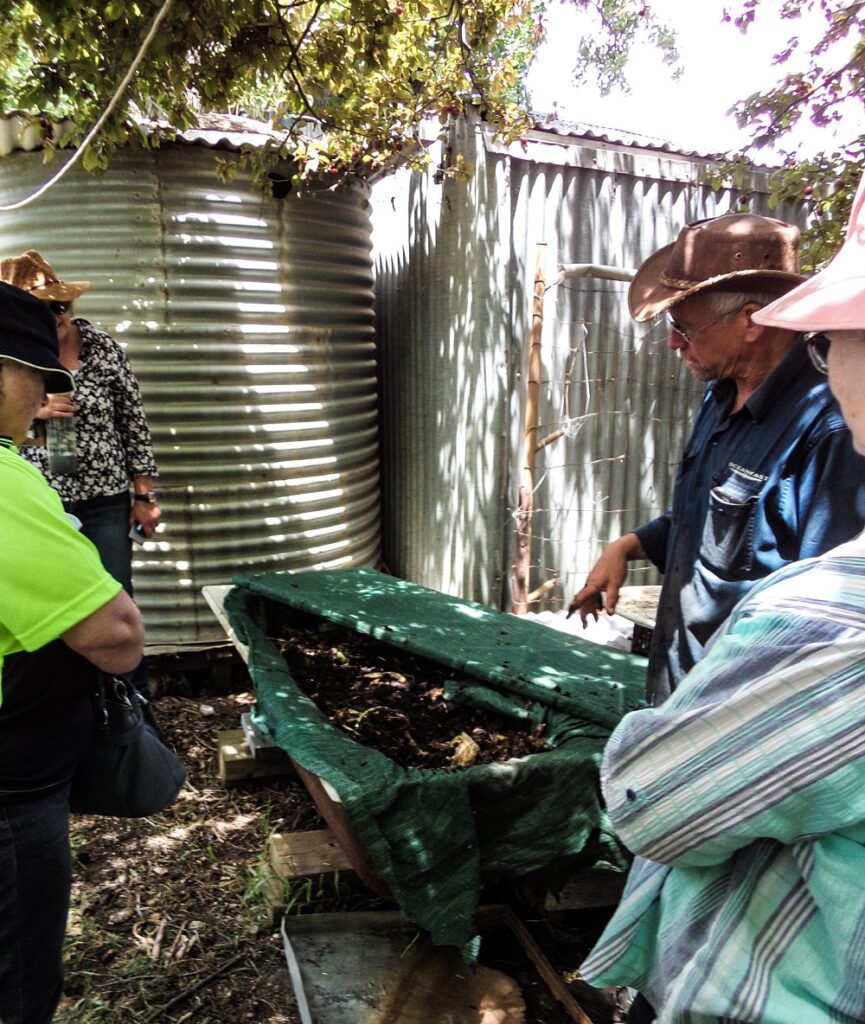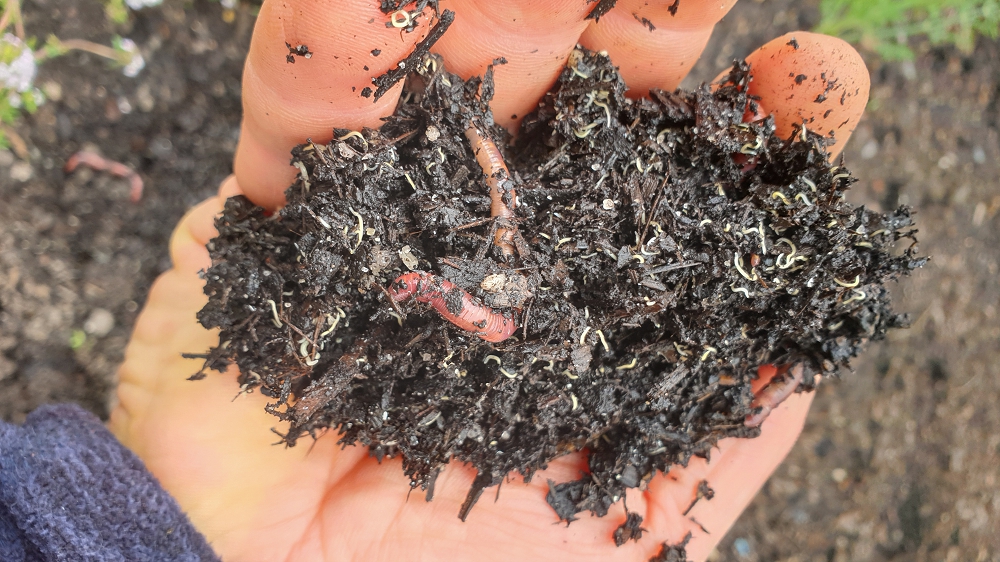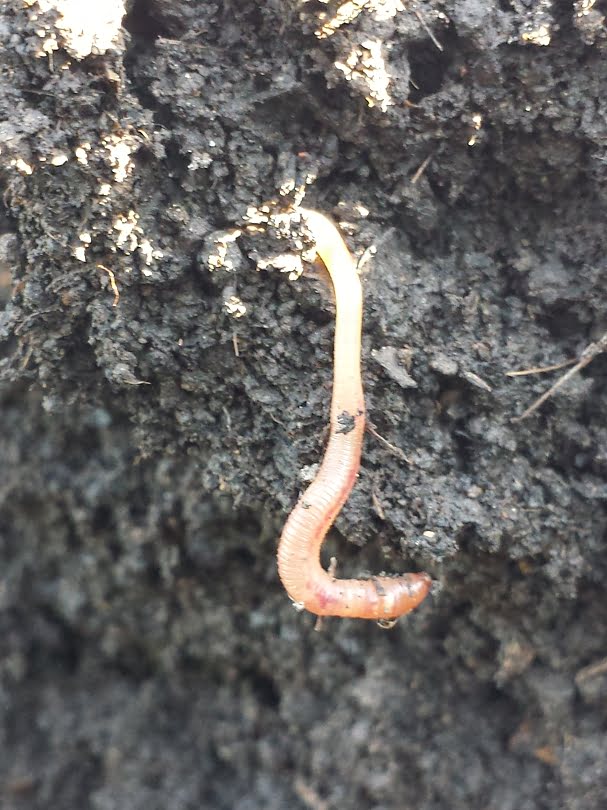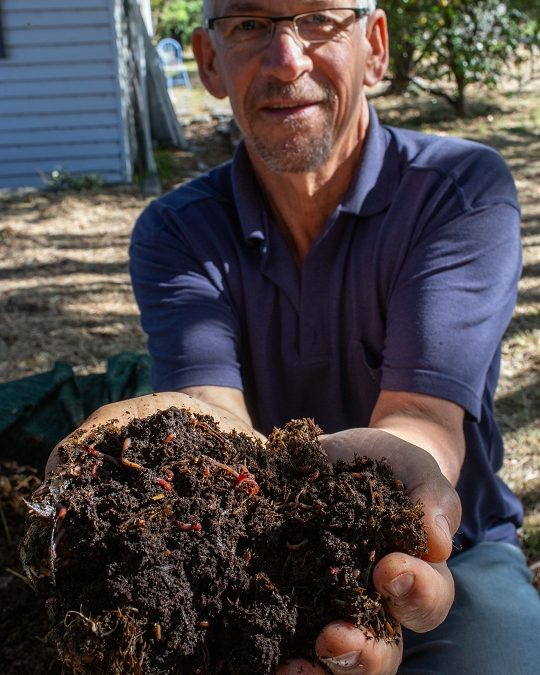Estimated reading time: 4 minutes
Do you have a worm farm?
Worms are wonderful workers. We reckon that a thriving worm farm is the best (and cheapest) way to produce high-quality organic fertiliser for your trees.
Related Articles
Warming winter cakes with home-grown fruit
Bake delicious warming winter cakes from the fruit you’ve grown on the fruit trees in your own garden for extra satisfaction.
3 simple ways to improve your soil
Here are 3 simple ways to kickstart the health of your soil to help you grow fruit that is full of vitamins and minerals.
Saving heritage fruit trees by planting them
Many heritage fruit tree varieties are in danger of going extinct. The best way to save them is by planting them in your backyard.
But like all workers, they’ll only give you their best if they have excellent working conditions.
Through summer (and particularly in a heatwave) it’s really important to give them some extra care and attention.

What conditions do worms like?
Generally speaking, worms don’t like extremes like:
- too hot,
- too cold,
- too wet, or
- too dry.
However, climate change means that summer conditions are becoming more extreme, and more variable. We’ve already noticed that here on the farm.
That means your worms are more likely to experience the sorts of weather they hate, more often.
Here are our top 5 tips for keeping your worm farm happy in all weather
- Keep it as cool as possible.
Worms don’t like extremes of temperature if it’s too hold or too cold. It’s best if you can put your worm farm somewhere where the temperature stays relatively constant and doesn’t fluctuate too much. A cellar is ideal, but a garage or even laundry is also good.
2. Position it out of the sun.
If it’s outside, make sure your worm farm is not in direct sun at any time of the day. Sunlight can quickly cause it to overheat, and worms hate direct light.
3. Cover the top of your worm farm with something.
This helps to keep the moisture in and the hot dry air out. There are lots of things you can use, such as newspaper, cardboard, old carpet, or underfelt (woollen). Give them a good soak, and then place them directly on the surface of your worm farm. It’ll make a huge difference. (Just be careful with old underfelt as sometimes it might have been treated with insecticide.)
4. Keep it moist.
This is probably the main reason worm farms fail. There should always be a bit of moisture dripping out of the bottom. If you grab a handful of the contents it should feel very moist. You should even be able to wring a couple of drips out.
5. Provide adequate drainage
Too much moisture is as bad as not enough. If water can’t easily drain through and away, you’ll soon find that the occupants either drown or disappear.
If you follow these tips there’s no reason why your worms won’t happily keep devouring your kitchen scraps and other organic waste right through the hottest weather.

Troubleshooting your worm farm
It sounds simple, right?
Unfortunately, we find that a lot of people have trouble with their worm farms.
But even worse is when people assume a worm farm is too much work, and don’t try to start one in the first place.
Luckily, the same principles for creating a successful worm farm apply, no matter how big or small your worm farm is.
If you’re yet to venture into the wonderful world of worms, it’s worth your time to find out more.
You’ll soon be reaping incredible benefits from these powerhouse workers in your garden.

Related Articles
Warming winter cakes with home-grown fruit
Bake delicious warming winter cakes from the fruit you’ve grown on the fruit trees in your own garden for extra satisfaction.
3 simple ways to improve your soil
Here are 3 simple ways to kickstart the health of your soil to help you grow fruit that is full of vitamins and minerals.
Saving heritage fruit trees by planting them
Many heritage fruit tree varieties are in danger of going extinct. The best way to save them is by planting them in your backyard.







HI,
i guess you have discovered by now a crucial typo in the current worm article above where at the beginning it reads, something like: ‘worms love extreme temperatures’.
Cheers,
Jan
Thanks Jan for your eagle eye – all fixed!
My worm farm has lots of large slugs living in it. They are light tan with lighter spots and 2 inches or so in size. I thought they may be tiger slugs and be good but not sure enough to let them free in my garden. What would you recommend?
Hi Mary, do you find that your worm farm functions okay with the slugs there? And, are you noticing any slug problems elsewhere in the garden? If the answer is no to both of those, I’d say that it’s okay to ‘live and let live’, especially if they are tiger slugs as you say. Thanks, Meg – GGF team.
I have a worm farm that I have to keep outside as my husband is not keen on my worms so there’s no way he will let me keep it in the garage.
I have encountered all the problems you mentioned. My colony of worms fluctuate. Sometimes there are millions in there and sometimes there are few. I gather it has something to do with the weather.
My question is – I go away a lot, about 7 to 8 days at a time. I feed them before leaving but by the time I come back food is all gone and so have the majority of the worms. Do they die of starvation or do they leave the farm in quest of food?
Hi Lise, it’s probably unlikely that the worms go outside the wormfarm, they may just be retreating further down in the wormfarm. Do you find it takes a little while for them to get going again when you return? I’d probably judge the health by how quickly material is broken down over how many worms I can see as they’ll move up and down depending on things like the weather, as you mention. If they are getting through all the food you leave though, it may be worth leaving them with additional material for your stints away to see what happens! Good luck, Meg – GGF team.